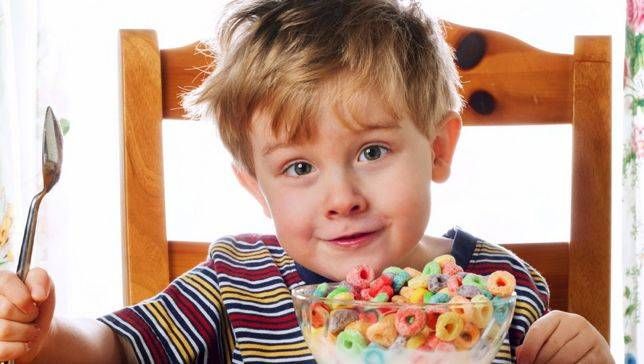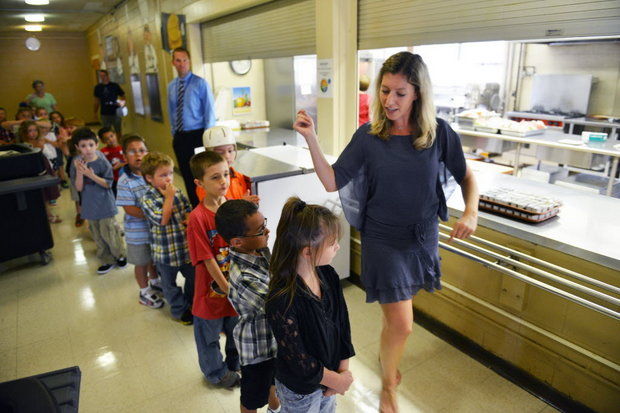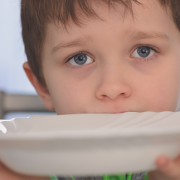Study Finds Gluten-Free Diet of No Benefit to Children with Autism
Sept. 14, 2015 11:28 a.m. ET – “University of Rochester researchers found that gluten-free and casein restricted diets had no effect on behavioral symptoms,” according to Shirley Wang, Wall Street Journal.
A diet popular as an alternative treatment for autism doesn’t appear to improve behaviors or symptoms of the condition, according to a small but rigorously conducted study published this month in the Journal of Autism and Developmental Disorders.
The new work, conducted by researchers at the University of Rochester Medical Center, examines the gluten-free, casein-free diet and offers what many experts in the field say perhaps the highest-quality evidence to date that eliminating proteins found in wheat and dairy doesn’t improve autism symptoms.
Many interventions for autism have been well-studied and demonstrate benefits, particularly if begun in children very young, including applied behavior analysis and developmental therapies.
But many families are willing to try a range of unproven therapies in an effort to do whatever they can to help their children, say clinicians and advocates. Some in the autism community have long suspected that diet and food additives have a negative impact on children with the developmental disorder, which is characterized by social and communication deficits.
 Anecdotal reports about restrictive diets improving or even erasing symptoms in children have prompted many parents to try such diets—especially, over the past 15 years or so, those restricting gluten, a protein found in wheat, and casein, present in dairy. At the University of Rochester’s Kirch Developmental Services Center, where some 1,200 children with autism are seen a year, about 1/3 have been on such a diet at some point, according to Susan Hyman, division chief of neurodevelopmental and behavioral pediatrics there and the lead author of the newly published paper.
Anecdotal reports about restrictive diets improving or even erasing symptoms in children have prompted many parents to try such diets—especially, over the past 15 years or so, those restricting gluten, a protein found in wheat, and casein, present in dairy. At the University of Rochester’s Kirch Developmental Services Center, where some 1,200 children with autism are seen a year, about 1/3 have been on such a diet at some point, according to Susan Hyman, division chief of neurodevelopmental and behavioral pediatrics there and the lead author of the newly published paper.
One theory behind the gluten- and casein-free diet is that children with autism have trouble digesting these proteins and, because of a “leaky gut”, absorb components of these compounds that lead to physical discomfort and behavioral symptoms, according to Dr. Hyman.
Research evidence about the diet, however, has been sparse and mixed. One major limitation of previous work is that usually parents know that the child is on the diet, leading to potential bias.
Experts’ biggest worry about the diet is that children may not get all necessary nutrients, such as calcium and vitamin D, once major food groups are eliminated. The diet also can be difficult for the parents to administer and the child to endure, particularly since many with autism tend to be picky eaters.
 Dr. Hyman, study author, and her team wanted to test, in as scientifically rigorous a manner as possible, whether the diet had benefits. Fourteen young children between three and five years old with a diagnosis of autism were put on a gluten- and casein-free diet for 30 weeks, working with a registered dietitian to make sure they were getting the necessary nutrition.
Dr. Hyman, study author, and her team wanted to test, in as scientifically rigorous a manner as possible, whether the diet had benefits. Fourteen young children between three and five years old with a diagnosis of autism were put on a gluten- and casein-free diet for 30 weeks, working with a registered dietitian to make sure they were getting the necessary nutrition.
After they got used to the diet, children were “challenged” weekly for 12 weeks either with a food that contained gluten, casein, both, or a placebo. None of the researchers, parents or children knew if they were getting a real food challenge or a placebo.
Though the researchers initially wanted more children in the study, ultimately only 14 completed it because of both the difficulty of persuading families to sign up and the number of dropouts, the researchers said. Some families left because their children complained about the diet.
The scientists recorded a range of behaviors in the lab after each food challenge and asked parents to monitor others at home, including a range of autism symptoms, sleep patterns and bowel movements.
Susan E. Levy, a neurodevelopmental-disabilities pediatrician at the Children’s Hospital of Philadelphia, who wasn’t involved with the current study, called the study “really well-designed” and a nice piece of evidence in helping to disentangle whether the diet really benefits children with autism or not.
 Dr. Hyman and her group worked carefully with a kitchen at the university clinical research center to create foods with and without gluten and casein. The with-without diets mimicked each other so closely in taste and texture that children couldn’t detect a difference.
Dr. Hyman and her group worked carefully with a kitchen at the university clinical research center to create foods with and without gluten and casein. The with-without diets mimicked each other so closely in taste and texture that children couldn’t detect a difference.
Dr. Hyman says, “Children with autism are so different from one another that it’s difficult generalize from the small study that the diet wouldn’t work for any children with autism.”
Dr. Hyman, says in her clinical practice she tells families that a gluten-free, casein-free diet doesn’t appear to be helpful, but if they are insistent on trying it while also giving their child evidence-based interventions, she would support them. “I can understand, with any chronic illness, people who address things with wellness and things they have control over,” like diet, says Dr. Hyman.
 The data showed no significant change in any of the outcomes between when they were challenged with gluten or casein and when they were given a placebo. “At this point in time we do not have evidence that the gluten-free, casein-free diet will improve the symptoms that we measured in young children with autism,” says Dr. Hyman. “But that doesn’t mean other aspects of nutrition shouldn’t be studied.”
The data showed no significant change in any of the outcomes between when they were challenged with gluten or casein and when they were given a placebo. “At this point in time we do not have evidence that the gluten-free, casein-free diet will improve the symptoms that we measured in young children with autism,” says Dr. Hyman. “But that doesn’t mean other aspects of nutrition shouldn’t be studied.”
Another takeaway from the study is that with the proper monitoring and consultation, the diet can be administered safely, Dr. Hyman says.
“We need to be skeptical about treatments that really don’t have evidence,” Dr. Levy says. “Even if they’re benign, we don’t want families spending time and money that may take away time from treatments we know are effective.”
She also cautioned that while dietary restrictions and supplements for autism are generally unsupported by evidence but likely not harmful, some other alternative treatments haven’t been well-studied and are potentially dangerous, and families should stay away from these. They include chelation or removing heavy metals from the body, stem cell therapy and hyperbaric oxygen therapy, says Dr. Levy.
Replicating these findings in a similarly high-quality study in a larger group of participants will be important to determine conclusively that the diet isn’t effective in children with autism, says Linda Bandini, a professor at the University of Massachusetts Medical School and Boston University, who conducts research on nutrition, physical activity and obesity in children with autism spectrum disorders and wasn’t involved in the study.
 Children with autism are so different from one another that it’s difficult generalize from the small study that the diet wouldn’t work for any children with autism, she says.
Children with autism are so different from one another that it’s difficult generalize from the small study that the diet wouldn’t work for any children with autism, she says.
Elaine Buchovecky, a nurse from Victor, N.Y., whose 14-year-old son Nicholas was in the study, said she had heard of the diet before but hadn’t tried it. “To me it was kind of no-brainer,” she says. “If it helps him, great.”
However, she didn’t see much of an impact when they made the changes. In fact, during one of the challenges, she and her husband were convinced that Nicholas was getting gluten but found out afterward that he received a placebo that week.
They continued their son on the diet for a brief time after the study ended until one day he got into a box of Cheerios, which have gluten in them, and he showed no difference in behavior after eating them. Her husband said there are so many things he won’t eat, if he likes this, let him eat it, recalls Ms. Buchovecky.













